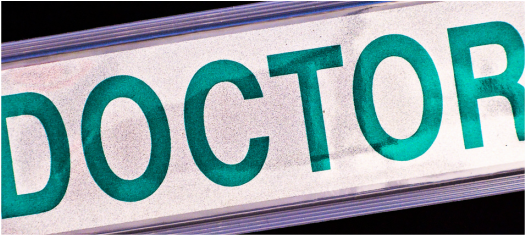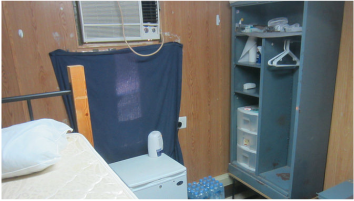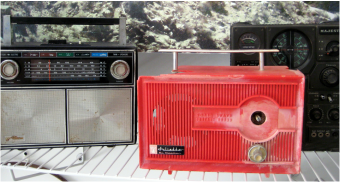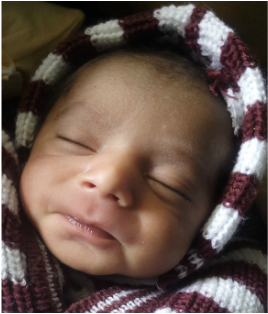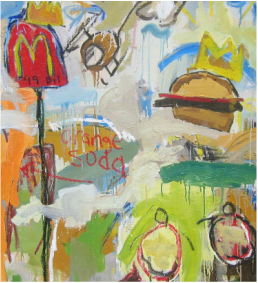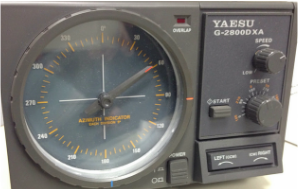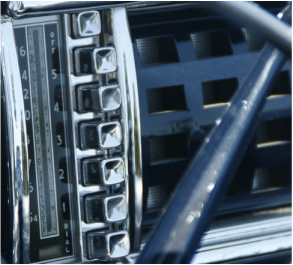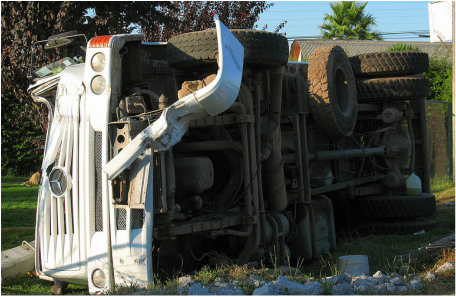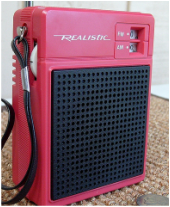
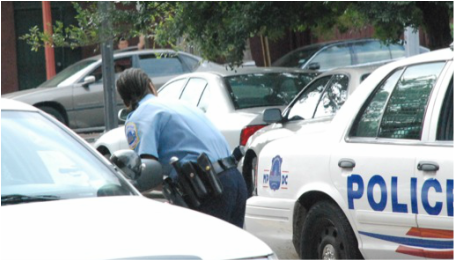
Don't buy it. When you sit down with them, have the following guidelines and agreement written out so you can emphasize them when you move along through the points. When adults write things down, it's serious. Sign your name and date it so it is the contract you intend it to be.
- "First, whatever you were doing that caused an officer to pull you over, we will not be angry about it. Surviving your poor judgment is the most important outcome of the situation. Everything else can be problem-solved. We will not be angry and scream and act all crazy, but there may/will be consequences depending on the situation.
- Second, we will do whatever we can to support you in problem-solving the situation, but we will not take your side if we think you conduct yourself poorly. Adult responsibilities require adult consequences. We will help you to cope with the consequences. If we think you were mistreated by the officer, we will advocate for you.
- You will pay us back for any expenses we incur. [Now, that could be 'code' for 'You'll owe us so much money that your grandchildren will be mowing our lawn and picking the weeds!']
- Yes, police officers are likely to be targeting you because you're a kid and you can be fairly easy pickins for a violation. It's a public safety issue. [Also, parents, be very careful about what kind of car you give them to drive. Does a 15-16 year old really need a new car? Be responsible and reasonable and ask yourself what you are setting them up for if you buy a brand, spanking new red sports car. Yep, they may be disappointed in your choice, but do they want transportation or not? Getting them a sturdy car that isn't all that flashy is likely to be the safest approach.]
Tell them, as close as you can without it sounding like a lecture, that speed is a huge problem with new drivers. And, speed is a huge factor in the severity of injuries and damage in accidents. I've seen some life-altering brain injuries following speed-related accidents, especially if the side of someone's head hits the car frame or a window. Roll-over accidents, in my experience, result in the most significant and permanent cognitive deficits. These "deficits" change the future for many kids.
Teach them how to handle themselves when interacting with a police officer or an EMT or any first responder. It could save their lives. If you haven't taught to say "Ma'am" and "Sir", practice now. Civility goes a long way in life.
There's no way to teach kids about the dangers that police officers face on a daily basis. Police walk a fine line between trusting the person they are encountering and suddenly fighting for their lives. Many kids only know what they see on the news and on television and both "versions" are typically far from the truth. Their perceptions of police are likely to be "off target". Your goal is to teach them that "these are the rules and the Smith family follows the rules" and not to convince them about how tough life is for a cop. Make sure you can make that statement about following the rules with conviction. Remember, they watch everything you do and while they are fantastic observers of life, they do not make accurate interpretations of the world. If you lie and "bend" the rules, they'll call you on it sooner or later.
The following guidelines should help facilitate the discussion:
1. What are the reasons a police officer has for stopping you?
- You've violated the traffic laws.
- You match the description of someone wanted for a crime.
- Your car looks like one used to commit a crime.
- Your vehicle is not in proper working condition.
- You look like you need help.
2. If you are pulled over...
- Hold your hands up in the air or out the car window so that the officer can clearly see that you do not have a weapon and you don't intend to flee.
- If it is dark, they will shine a very bright light into your car and on you. They have no idea who you are and they want to be able to go home at the end of their shift. They are not trying to abuse you. Don't complain about the light.
- Stay in the car unless directed otherwise.
- Do not make any sudden moves. This behavior may be interpreted as aggression or moving toward a weapon. They will respond defensively.
- You and your passengers may be asked to get out of the car.
- Respond respectfully.
- Do NOT overtalk,
- Do NOT ask questions.
- Answer the officer's questions without being a wise cracker.
- Don't defend yourself. You will have your day in court.
- Don't tell them you are paying their salary.
- Don't joke with your passengers and act like this is "fun". It isn't.
- Don't tell them who your parents are. Nobody cares. If you were putting other citizens at risk, tough luck.
- Suck it up if they hurt your feeling or insult you. Too bad. Grow up. They are trained to deal with all kinds of people and they are required to be overly polite, but they may be having a really bad day, too. You have no idea what they've put up with before they stopped you. Give them a break.
- Always know where your license, registration and proof of insurance are located. Tell the officer where they are in the car and ask permission to retrieve them.
- Sign the citation or risk immediate arrest. Signing the citation is not an admission of guilt. Your signature is a receipt of sorts.
- If they are plain clothes officers, they should show identification immediately.
- Ask for a business card. They carry them.
Emphasize to your teen how serious this encounter is and just how fast they can get themselves into real trouble without realizing it. Traffic stops can deteriorate quickly and it's likely that the whole scenario is being recorded, so pay attention.
If the officer feels threatened because your teen is not taking the situation seriously, they will up the ante, exert their control and authority and possibly arrest your teen for failing to comply with a sworn police officer's request. If your teen suddenly realizes that they've pushed it too far, they should not resist being arrested. Things will go from really bad to horribly worse in a moment. Resisting arrest is huge and could have lifelong consequences in terms of a "record".
Special points here.
- If you are a female and frequently drive alone, call your local law enforcement and ask them how to handle the situation if you are stopped by a plain clothes officer in an unmarked car. Logic suggests that you take whatever steps are necessary to stay in your car until you verify his identity. Logic also suggests that you use technology to document the situation and to reach out to others to tell them your location until you are assured of your safety. Let common sense guide you, but parents, it is important to reinforce to your teens that there have been instances of predators masquerading as police officers in order to commit crimes. These situations are few and far between, but it happens.
- I was cautioned about the name plate I had on my new car in 1976. It was explained to me that "the bad guys" can spot a potential victim a "mile away" and if you advertise that the car belongs to a female, it makes it easier for them to "lie in wait". I removed the plate and any contents of my car that advertised that a woman owned the car. Having all that "cutsie" stuff hanging in your car might scream, "Come and get me!"
- Advise your teen that they are responsible for the conduct of those in their car. If they insist on having questionable guests in their car, they need to be prepared to live with the consequences.
- Consider the advantages of having additional insurance coverage through an umbrella policy in the case of a catastrophic accident involving significant damage to others. Talk with your insurance agent. My experience was that this additional coverage was not unreasonably expensive.
- Be prepared to review your agreement and the "tutorial" several times so that your teen understands how seriously you take the agreement. They'll say, "I know, I know" and yes, they do know, but will they do what they need to dowhen they need to do it? That is the question and rehearsal is the only way to get them to "internalize" the concepts. Practice does make perfect.
- Avoid being preachy. Take an authoritative (not authoritarian) posture. You're an adult with experience and wisdom. Don't slap them around with it, but make sure they know that this "lesson" is a condition of the privilege and responsibility of driving a car.
- EMPHASIZE REPEATEDLY, especially when they go out and even more emphatically, if they are not the driver, that you will come to get them, any hour, any minute, anywhere, no questions asked under any circumstances, rain or shine, dark or light...anything! Drivers do not have to be drunk to be dangerous. If they take risks and are showing off or angry and out of control, it's time to get out. Help them to develop judgment regarding an "exit" strategy.
Now, here's what happened in the McCulloch family. The training worked...yipeee!
Our son was driving himself to school and, are you ready for this, was "keeping up with traffic, Mom" when a "notorious" sheriff nailed him for doing 75+, yes, 75 miles per hour on a two-lane road high above the Pacific Ocean. Now, mind you, this is a road with signs that say EXTREME LAND MOVEMENT! CAUTION! CAUTION! and they're not kidding. This road crosses a "geologically active" area meaning that it is sliding into the Pacific. Some days, it moves 6 inches at a time and the road crews are out there frantically trying to keep up with the movement. One false move and my kid could have catapulted himself over a 100+ foot cliff. One bump and he could have killed a crew of workers.
He finally broke down several days later when he had a chance to process "what" had happened and I followed my own advice. He was standing in the kitchen and was in one piece, so I prioritized my thinking despite the fact that I wanted to fly across the counter and hit him with the wooden spoon full of tomato sauce. "What's the problem here?" My answer was "Absolutely nothing". He's scared to death and I LOVE it!
He fully confessed that he was an idiot because, at that moment in the kitchen, he realized that being late for class wasn't, after all, a big deal when compared to a full roll-over accident for which "You would have killed me if I was still alive, Mom". Oh, he knows me well. The agreement was that I would help him resolve the ticket and abide by his request not to tell Dad as long as he never got another one. Several years later, I told my husband. His response? "Good move, honey. I wouldn't have done well with that". Withholding this kind of information may be a deal-breaker in your relationship, but it worked for us on this issue.
I sent the deputy a Starbucks card and a thank you note. I was very clear about the gift he gave my family that early morning. In the end, I'd rather hear from the cops than from the coroner.
As kids get older and their world expands, our worlds, as parents, becomes even more terrifying. There so much that cannot be controlled. Frequent training on these kinds of situations is key to reducing the "misery index". As always, just do the best you can. A bit of prayer doesn't hurt, either.
TTFN, Claudia




